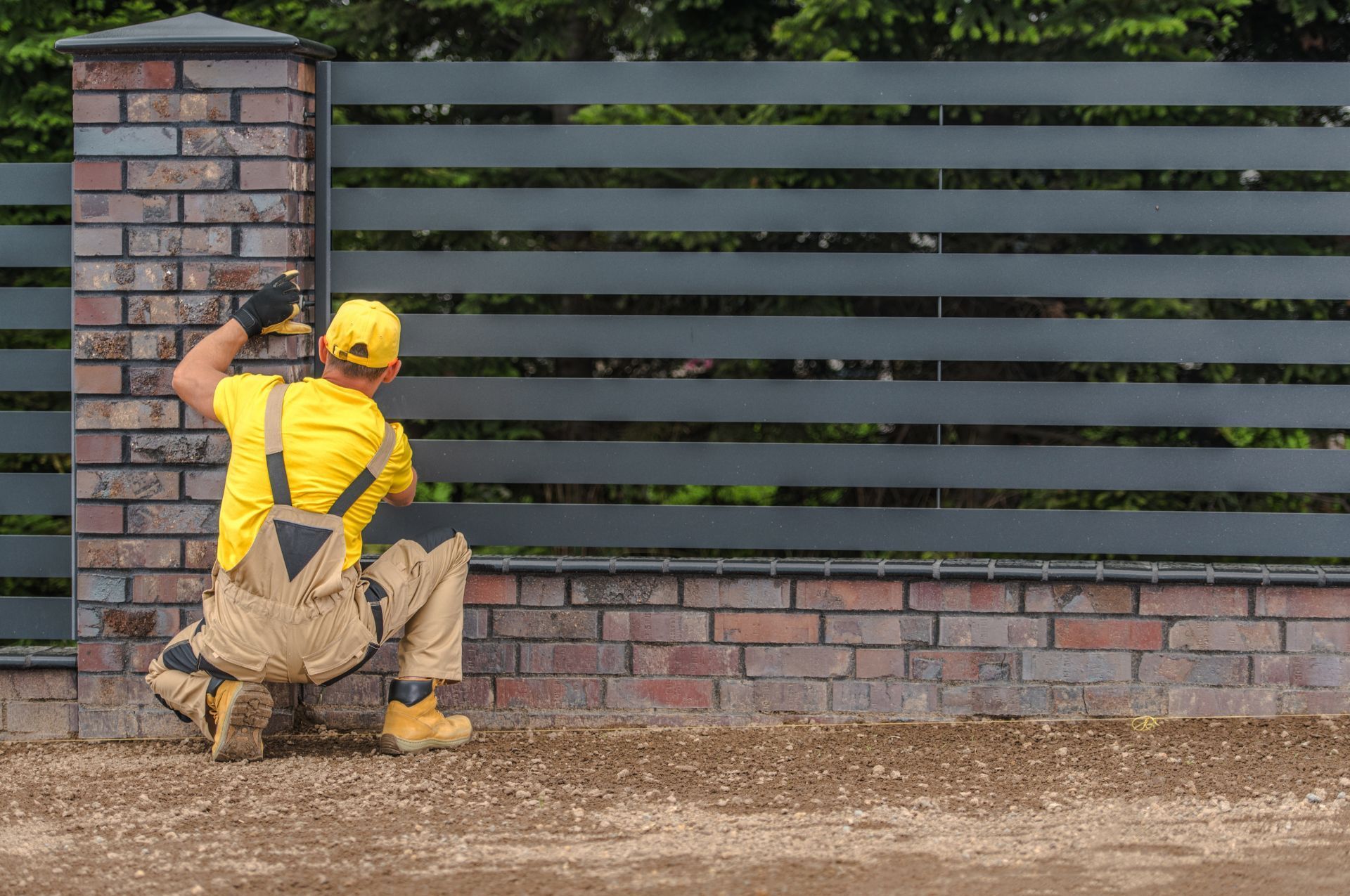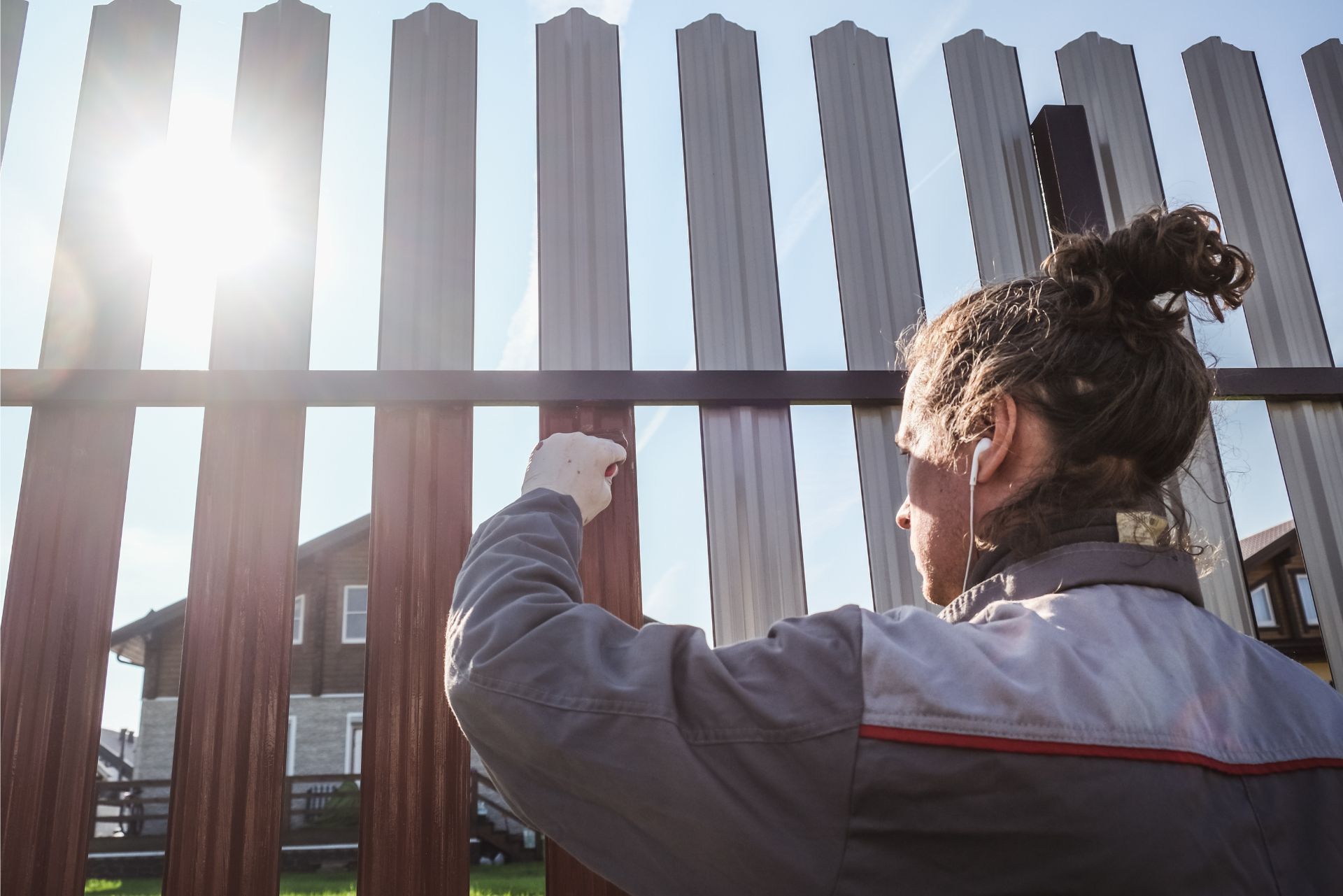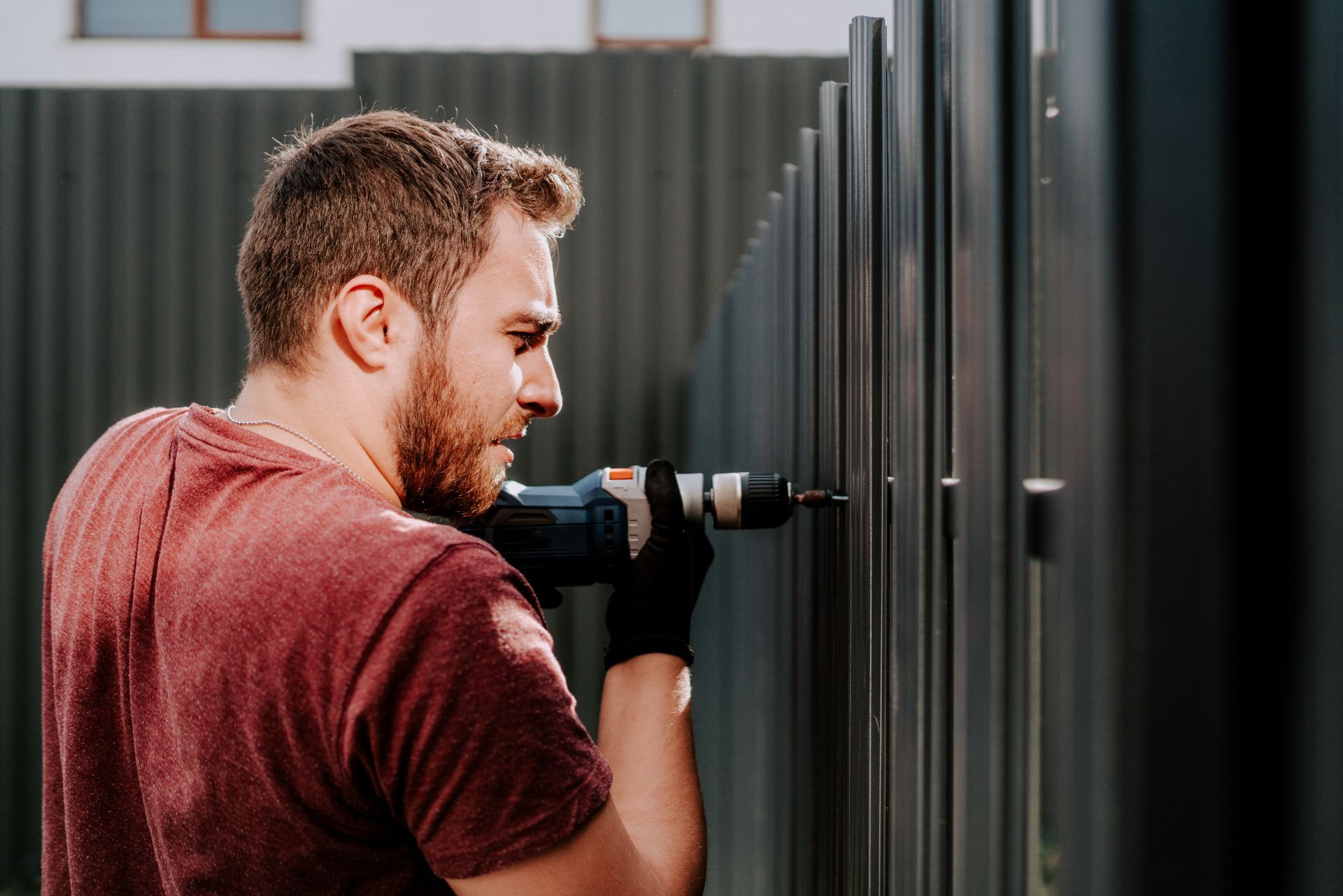
Top 3 Recommended Policies
In the world of construction and home improvement, insurance is a crucial aspect that cannot be overlooked. For fence installers in Connecticut, understanding the nuances of insurance is vital not only for compliance but also for protecting their business and clients. This article delves into the various facets of insurance specifically tailored for fence installation professionals in Connecticut.
Understanding the Importance of Insurance for Fence Installers
Insurance serves as a safety net for businesses, shielding them from unexpected financial losses. For fence installers, the risks can be significant, ranging from property damage to personal injury. Having the right insurance coverage is essential for ensuring that both the installer and the client are protected throughout the installation process. In an industry where the physical nature of the work can lead to unforeseen accidents, insurance not only provides peace of mind but also enhances the credibility of the business. Clients are more likely to trust and hire a fence installer who is adequately insured, knowing that they are protected from potential mishaps.
Types of Risks Faced by Fence Installers
Fence installation involves various risks that can lead to accidents or damages. These may include:
- Injury to workers or bystanders during installation.
- Damage to property, such as neighboring structures or landscaping.
- Equipment theft or damage.
Each of these risks can result in significant financial implications, making insurance not just a legal requirement but a smart business decision. Furthermore, the nature of the work often requires the use of heavy machinery and tools, which can pose additional hazards. For instance, a worker may accidentally drop a tool from a height, potentially injuring someone below. Additionally, adverse weather conditions can lead to slips, trips, and falls, further emphasizing the necessity of comprehensive coverage. By being proactive about insurance, fence installers can mitigate these risks and focus on delivering quality service without the looming worry of financial repercussions.
Legal Requirements for Insurance in Connecticut
Connecticut law mandates certain types of insurance for contractors, including fence installers. Understanding these legal requirements is crucial for compliance and for avoiding potential fines or legal issues. The primary types of insurance that fence installers should consider include:
- General Liability Insurance: This protects against claims of bodily injury and property damage.
- Workers' Compensation Insurance: Required for businesses with employees, this covers medical expenses and lost wages for workers injured on the job.
- Commercial Auto Insurance: If vehicles are used for business purposes, this insurance is necessary to cover accidents and damages.
In addition to these essential coverages, fence installers may also want to consider additional policies such as professional liability insurance, which protects against claims of negligence or failure to deliver services as promised. This can be particularly valuable in cases where a client believes that the installation did not meet industry standards or contractual obligations. Moreover, bonding may also be a requirement for certain projects, providing an extra layer of security for clients and ensuring that the installer fulfills their contractual duties. By being well-informed about these legal requirements and additional options, fence installers can better navigate the complexities of their business landscape and ensure they are fully protected against a variety of potential challenges.

Types of Insurance Coverage for Fence Installers
Choosing the right insurance coverage is crucial for fence installers. Various types of insurance can provide comprehensive protection tailored to the specific needs of the business.
General Liability Insurance
General liability insurance is often the cornerstone of a contractor's insurance portfolio. It covers claims related to bodily injury, property damage, and personal injury that may occur during the course of business operations. For fence installers, this means protection against accidents that might happen on a job site, such as:
- A client tripping over tools left on the ground.
- Damage caused to a neighbor's property during installation.
Having this coverage not only protects the business financially but also builds trust with clients, who may feel more secure knowing that the installer is insured. Additionally, general liability insurance can cover legal fees in the event of a lawsuit, which can be a significant financial burden for small businesses. This peace of mind allows fence installers to focus on their work without the constant worry of potential liabilities lurking around every corner.
Workers' Compensation Insurance
For any business that employs workers, workers' compensation insurance is a legal requirement in Connecticut. This type of insurance provides coverage for medical expenses and lost wages for employees who sustain injuries while working. For fence installers, the physical nature of the job can lead to various injuries, from cuts and bruises to more severe accidents. Workers' compensation ensures that employees are taken care of, which can also enhance job satisfaction and retention. Furthermore, having this insurance can improve the overall safety culture within the company, as it encourages employers to invest in safety training and equipment to minimize workplace risks.
Commercial Auto Insurance
Many fence installers use vehicles to transport materials and equipment to job sites. Commercial auto insurance is essential for protecting these vehicles and covering any accidents that may occur while they are being used for business purposes. This insurance can cover:
- Repairs for damaged vehicles.
- Liability for injuries or damages caused by the vehicle.
Without this coverage, a single accident could lead to substantial financial losses for a business. Additionally, commercial auto insurance can also provide coverage for theft or damage to tools and equipment stored in the vehicle, which is particularly important for fence installers who often carry expensive machinery. As such, this type of insurance not only safeguards the vehicle but also protects the valuable assets that are crucial for completing projects efficiently and effectively.
While general liability, workers' compensation, and commercial auto insurance are the primary types of coverage needed, there are additional options that can provide further protection for fence installers.
Tools and Equipment Insurance
Fence installation often requires specialized tools and equipment, which can be expensive to replace if lost or damaged. tools and equipment insurance provides coverage for theft, loss, or damage to these essential items. This type of insurance can be a lifesaver for contractors who rely on their tools to complete jobs efficiently. Additionally, many fence installers invest in high-quality tools that are specifically designed for their trade, such as post hole diggers, saws, and augers. These tools not only enhance productivity but also ensure the quality of the installation. In the event of an unforeseen incident, having tools and equipment insurance means that a contractor can quickly replace their gear and minimize downtime, keeping their business running smoothly.
Professional Liability Insurance
Also known as errors and omissions insurance, professional liability insurance protects against claims of negligence or inadequate work. For fence installers, this could apply if a client claims that the installation did not meet agreed-upon specifications or if there were design flaws. Having this coverage can help protect a business's reputation and finances in case of disputes. Furthermore, as the industry evolves, clients may have increasingly complex requirements or expectations, making it essential for fence installers to stay updated on best practices and design standards. Professional liability insurance not only safeguards against potential claims but also encourages installers to maintain high-quality workmanship and adhere to industry regulations, fostering trust with clients.
Umbrella Insurance
Umbrella insurance provides an extra layer of protection beyond the limits of existing policies. For fence installers, this means additional coverage for liability claims that exceed the limits of general liability or commercial auto insurance. This can be particularly beneficial in the event of a serious accident that leads to significant claims. For instance, if a fence installation inadvertently causes property damage or bodily injury, the costs associated with legal fees and settlements can quickly escalate. Umbrella insurance can help cover these unexpected expenses, allowing fence installers to focus on their work without the constant worry of potential financial ruin. Moreover, this type of insurance can also extend to other areas of a contractor's business, offering comprehensive protection that encompasses various risks associated with the trade.
Choosing the Right Insurance Provider
Selecting the right insurance provider is as important as choosing the right coverage. A reliable provider can make the process of obtaining and managing insurance much smoother. The right provider not only offers the necessary coverage but also understands the unique challenges and risks associated with your specific industry, allowing for tailored solutions that meet your business's needs.
Factors to Consider
When evaluating potential insurance providers, consider the following factors:
- Reputation: Research the provider's reputation in the industry. Look for reviews and testimonials from other contractors. Additionally, check their financial stability through ratings from agencies like A.M. Best or Standard & Poor's, as this can give you insight into their ability to pay claims.
- Experience: Choose a provider that has experience working with contractors in the construction or home improvement industry. An experienced provider will understand the specific risks your business faces, from liability issues to equipment coverage, and will be better equipped to offer comprehensive solutions.
- Customer Service: A responsive and helpful customer service team can make a significant difference when filing claims or seeking assistance. Consider reaching out to their customer service with questions before you purchase a policy to gauge their responsiveness and willingness to help.
Getting Quotes
Once potential providers have been identified, obtaining quotes is the next step. It’s advisable to gather multiple quotes to compare coverage options and costs. When requesting quotes, be prepared to provide details about the business, including:
- The number of employees.
- The types of services offered.
- Annual revenue.
Providing accurate information will help ensure that the quotes received are reflective of the actual needs of the business. Additionally, consider asking about any discounts that may be available, such as those for bundling policies or having a good safety record. This could lead to significant savings over time, making it easier to manage your overall business expenses.
Furthermore, don’t hesitate to ask potential providers about their claims process. Understanding how claims are handled, including the average time for resolution and the level of support provided during the claims process, is crucial. A provider that offers a streamlined and transparent claims process can save you time and stress when you need it most, ensuring that you can focus on your business rather than navigating complex insurance issues.

Cost of Insurance for Fence Installers
The cost of insurance can vary widely based on several factors, including the size of the business, the types of coverage selected, and the specific risks associated with the work being performed. Understanding these costs can help fence installers budget effectively.
Factors Influencing Insurance Costs
Several factors can influence the cost of insurance for fence installers:
- Business Size: Larger businesses with more employees may face higher premiums due to increased risk.
- Claims History: A history of claims can lead to higher premiums, as insurers may view the business as a higher risk.
- Coverage Limits: Higher coverage limits typically result in higher premiums.
Average Insurance Costs
While costs can vary, on average, fence installers in Connecticut may expect to pay:
- General Liability Insurance: $400 to $1,500 annually.
- Workers' Compensation Insurance: $1,000 to $3,000 annually, depending on payroll and risk factors.
- Commercial Auto Insurance: $1,200 to $3,000 annually, based on vehicle type and usage.
These figures are estimates and can vary based on individual circumstances and market conditions.
Common Misconceptions About Insurance for Fence Installers
There are several misconceptions surrounding insurance that can lead to inadequate coverage or misunderstandings about its importance. Addressing these misconceptions can help fence installers make informed decisions.
“I Don’t Need Insurance If I’m Small”
Many small business owners believe that they can operate without insurance due to their size. However, accidents can happen at any scale, and the financial repercussions can be devastating. Insurance is essential for protecting any business, regardless of its size.
“My Clients Will Cover Any Damages”
Some fence installers may assume that clients will take responsibility for any damages that occur during installation. This is a risky assumption, as clients may not have the financial means to cover unexpected costs. Having insurance ensures that the installer is protected, regardless of the client's ability to pay.
“Insurance Is Too Expensive”
While insurance premiums can seem high, the cost of not having insurance can be far greater. A single accident or claim can lead to financial ruin for a small business. Investing in insurance is a proactive step that can save money in the long run.
Steps to Take After an Incident
In the event of an accident or incident, knowing the appropriate steps to take can help mitigate damages and ensure claims are processed efficiently.
Document the Incident
Immediately after an incident, it is crucial to document what happened. This includes taking photos, gathering witness statements, and noting any relevant details. Comprehensive documentation will support any claims filed later.
Notify Your Insurance Provider
Contact your insurance provider as soon as possible to report the incident. They will guide you through the claims process and inform you of any necessary steps to take. Prompt notification is essential, as delays can complicate claims.
Follow Up on Claims
After filing a claim, stay in communication with your insurance provider. Follow up to ensure that the claim is being processed and provide any additional information they may require. Keeping an open line of communication can help expedite the claims process.
Conclusion
Insurance is a critical component of running a successful fence installation business in Connecticut. Understanding the various types of insurance available, knowing the legal requirements, and selecting the right provider can protect both the business and its clients. By investing in comprehensive insurance coverage, fence installers can focus on what they do best—creating beautiful and functional fences—while having peace of mind that they are protected against unforeseen events.
As the industry continues to evolve, staying informed about insurance options and requirements will remain essential for all fence installers. Whether just starting out or looking to reassess current coverage, taking the time to understand insurance can lead to better business decisions and greater success in the long run.
Contact Us
Phone
Locations
Connecticut Location
703 Hebron Ave., 3rd Floor, Glastonbury, CT 06033
North Carolina Location
436 East 36th St., Charlotte, NC 28205


